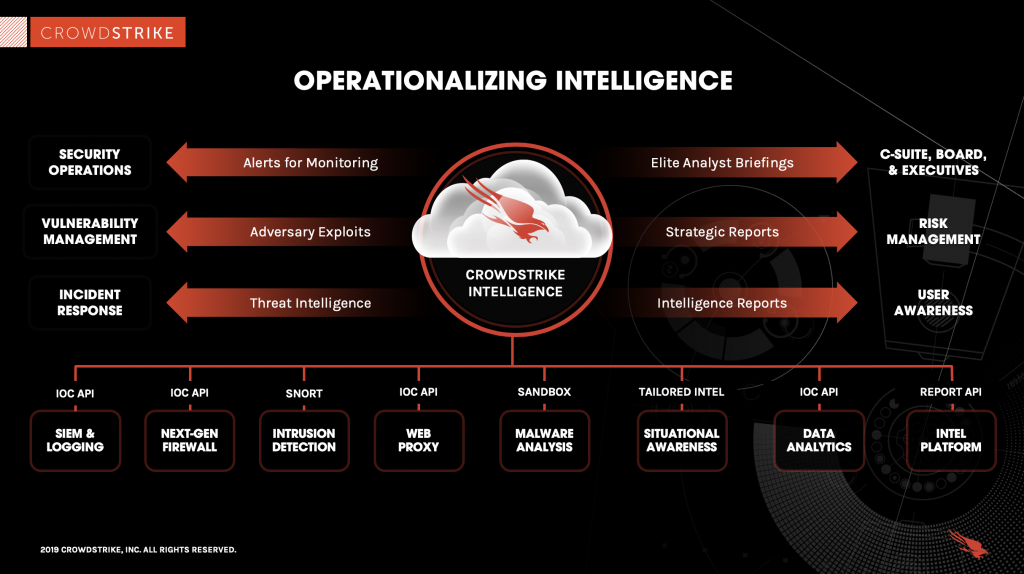In a landmark initiative to bolster global cybersecurity capabilities, the Ministry of Information Technology, Communication, and Innovation in Mauritius, through the Computer Emergency Response Team of Mauritius (CERT-MU), officially launched an international Cyber Threat Intelligence (CTI) training program. Held from June 30 to July 4, 2025, at Hennessy Park Hotel in Ébène, this program brings together cybersecurity professionals from 13 diverse countries aiming to strengthen their expertise in identifying and mitigating cyber threats.
Understanding Cyber Threat Intelligence: The Foundation of Modern Security
Cyber Threat Intelligence (CTI) is the practice of collecting, analyzing, and sharing information about potential cyber threats to prevent or mitigate attacks. The training program led by CERT-MU focuses on key CTI concepts, including the full lifecycle of threat intelligence, from initial data gathering to actionable insights. Participants learn to utilize specialized platforms like the Malware Information Sharing Platform (MISP) that facilitate real-time sharing of threat data across organizations and borders.
Cyber Threat Intelligence Training: International Collaboration at Its Best
The success of this training initiative lies in its collaborative approach. Supported by the International Telecommunication Union (ITU) and funded by the European Union, the program unites participants from Mauritius, Djibouti, Nigeria, Tunisia, Albania, Malaysia, Zimbabwe, India, Tanzania, Namibia, Somalia, Zambia, and Uganda. This diverse group fosters cross-border knowledge exchange and helps establish strong networks vital for combating increasingly sophisticated cyber threats worldwide.
Addressing Cross-Border Challenges in Cybersecurity
One of the most pressing challenges in cybersecurity today is the transnational nature of cyber threats. Hackers operate across jurisdictions, exploiting legal and technical gaps between countries. This training equips participants with tools and strategies to overcome such hurdles through timely information sharing and joint responses. Emphasizing cooperation, the program encourages establishing real-time communication channels and protocols to swiftly detect and neutralize cyber attacks.
Building a Resilient Digital Hub: Mauritius’ Strategic Vision
Mauritius aims to position itself as a reliable and resilient digital hub in the Indian Ocean region. By investing in advanced cybersecurity training and infrastructure, the country seeks to protect its digital economy and attract international business. The CTI program aligns with this vision by strengthening local expertise while contributing to global cybersecurity efforts, ensuring Mauritius remains competitive and secure in the digital era.
Practical Training: Hands-On Experience with Cutting-Edge Tools
The program’s practical focus is one of its standout features. Participants not only study theoretical frameworks but also engage with real-world scenarios using platforms like MISP. This hands-on approach enhances their ability to identify malware patterns, analyze threat indicators, and share intelligence effectively. Such experience is invaluable in preparing cybersecurity professionals to respond swiftly and efficiently to emerging threats.
Cyber Threat Intelligence Training: Strengthening Global Cyber Defense Networks
The rapid growth of cyber threats across the globe has underscored the critical importance of international cooperation in cybersecurity. Cyber Threat Intelligence Training programs, such as the one launched by Mauritius, play a pivotal role in enhancing the skills and knowledge of cybersecurity professionals worldwide. This program not only educates participants on the latest threat intelligence methodologies but also fosters collaboration between countries to create resilient defense networks capable of withstanding sophisticated cyberattacks. According to European Union’s cybersecurity strategy, such collaborative efforts are vital for maintaining the integrity and security of digital infrastructures.
Building Expertise: The Role of Practical Exercises in Cyber Threat Intelligence Training
While theoretical knowledge forms the foundation of cybersecurity, practical exercises are indispensable for real-world readiness. The Mauritius training program emphasizes hands-on sessions, where participants engage with actual threat data and utilize platforms like the Malware Information Sharing Platform (MISP). This practical exposure enables trainees to simulate threat detection and response scenarios, enhancing their ability to analyze malware behavior and share actionable intelligence efficiently. Experts from CERT-MU guide participants through these exercises, ensuring that they acquire applicable skills that can be immediately deployed in their respective countries.
Cyber Threat Intelligence Training: Challenges in Transnational Cybersecurity Cooperation
Despite advances in technology and training, Cyber Threat Intelligence Training must contend with persistent challenges in cross-border cooperation. Differences in legal frameworks, data privacy laws, and national interests often hinder the seamless exchange of threat intelligence. The training program addresses these obstacles by encouraging dialogue on harmonizing policies and establishing trusted communication channels among participating countries. Moreover, discussions focus on overcoming technical barriers such as incompatible platforms and varying threat reporting standards. By fostering mutual understanding, the program contributes to building a cohesive international cybersecurity community.
Cybersecurity Capacity Building in Africa: The Importance of Regional Initiatives
Africa faces unique cybersecurity challenges, including limited resources and a growing digital economy vulnerable to attacks. Regional initiatives like the Mauritius-led Cyber Threat Intelligence Training program are instrumental in addressing these challenges by providing targeted training that considers the continent’s specific needs. Participants from countries like Nigeria, Tanzania, and Zambia benefit from shared experiences and tailored strategies that reflect their cybersecurity environments. Supporting such capacity-building programs is crucial to safeguarding Africa’s digital future and enabling sustainable economic growth.
Future Prospects: Sustaining Momentum Beyond Initial Training
Launching a successful training program is only the beginning of a long-term effort to enhance cybersecurity. Sustaining the momentum requires continuous learning, updating skills, and maintaining international partnerships. The Mauritius program includes plans for follow-up workshops, advanced training modules, and the creation of a network of alumni who can support each other in tackling emerging threats. Integrating these efforts with global cybersecurity frameworks will ensure that the benefits of the training extend well beyond the initial sessions, creating a lasting impact on national and international cybersecurity landscapes.
Emerging Trends in Cyber Threat Intelligence Training
As cyber threats continuously evolve, so must the training programs designed to combat them. The Cyber Threat Intelligence Training program emphasizes emerging trends such as artificial intelligence (AI) and machine learning (ML) integration for threat detection and response. Participants explore how AI-driven analytics can sift through vast datasets to identify anomalies faster than traditional methods. This proactive approach not only improves detection speed but also reduces false positives, allowing security teams to focus on genuine threats. Furthermore, the rise of cloud computing introduces new attack surfaces, making cloud security a critical component of modern CTI training. Addressing these innovations ensures that trainees are well-prepared for the rapidly changing cybersecurity landscape.
Policy Development and International Standards in CTI
Effective cybersecurity is as much about technology as it is about governance. The training program includes detailed discussions on international standards and policies that govern information sharing and threat response. Participants learn about frameworks such as the NIST Cybersecurity Framework and GDPR regulations, which influence how data is handled and shared across borders. Understanding these legal and regulatory landscapes is essential for crafting compliant and effective CTI strategies. Through case studies and policy analysis, trainees gain insights into developing organizational policies that balance security needs with privacy considerations, fostering trust among partners and stakeholders. For a regional perspective on how political realignments shape governance, explore our article on Nigerian Party Politics: 4 Big Names Rock the 2027 Race.
Strengthening Public-Private Partnerships Through Training
The growing complexity of cyber threats necessitates strong collaboration between public institutions and private sector entities. The Cyber Threat Intelligence Training program promotes the establishment of public-private partnerships (PPPs) by providing frameworks for cooperation and information exchange. Such partnerships enable sharing of threat intelligence between governments, businesses, and cybersecurity vendors, creating a comprehensive defense ecosystem. The program also explores challenges such as trust-building, data sensitivity, and legal constraints that can impede collaboration, and offers solutions to overcome these barriers. Strengthened PPPs result in quicker threat mitigation and enhanced national cybersecurity posture.
Developing Leadership Skills for Cybersecurity Professionals
Beyond technical expertise, leadership skills are crucial for cybersecurity professionals tasked with managing teams and responding to incidents. The program integrates leadership development modules that focus on communication, crisis management, and strategic planning within the context of cybersecurity. Participants learn how to effectively lead incident response teams, coordinate across departments, and communicate risks to non-technical stakeholders. These skills are vital for ensuring that cyber threat intelligence translates into decisive and coordinated action, minimizing damage and recovery time during cyber incidents.
Promoting Continuous Education and Skill Refreshment
Cybersecurity is a dynamic field where threats and technologies constantly change. Recognizing this, the training program emphasizes the importance of continuous education and ongoing skill refreshment. Graduates are encouraged to engage in periodic training sessions, certifications, and community knowledge-sharing platforms. This commitment to lifelong learning ensures that professionals remain adept at identifying new threats and implementing up-to-date defense mechanisms. Additionally, alumni networks created through the program facilitate peer support and sharing of best practices, further strengthening the global cybersecurity community.




